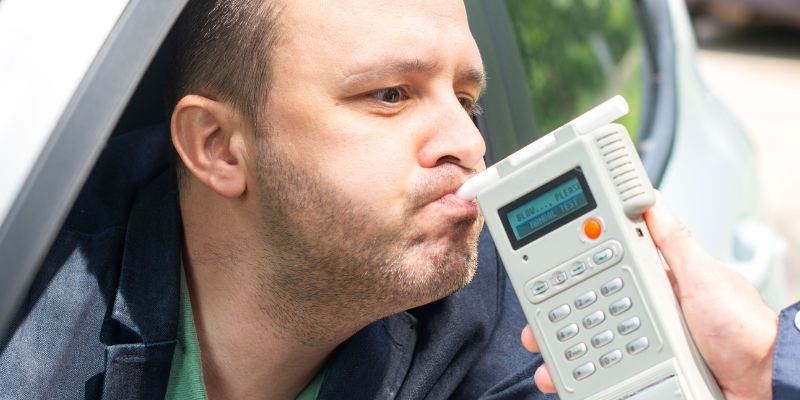
Facing a Driving Under the Influence (DUI) charge in California for the first time can be daunting. Understanding the potential implications and penalties is crucial for anyone involved in such a situation. A conviction for a first-offense DUI in California could lead to fines, license suspension, and even jail time. The severity of consequences often depends on factors like Blood Alcohol Concentration (BAC) at the time of arrest.
Our legal system takes DUI offenses seriously, emphasizing public safety and responsibility. When someone is caught driving with a BAC of 0.08% or higher, they are considered under the influence. It’s important for us to be informed about our rights and the legal processes we might face.
We must also be aware of the long-term effects of a DUI conviction on our personal and professional lives. Insurance rates can skyrocket, and having a criminal record may impact career opportunities. Knowing the full scope of a DUI charge is essential for making informed decisions, whether it involves fighting the charge or seeking legal guidance.Learn more about DUI California First Offense
Legal Implications of a First-Time DUI in California
In California, the legal implications of a first-time DUI can be severe, involving multiple processes and potential penalties. Understanding the charges, the court process, and the consequences is crucial for anyone facing these circumstances.
Understanding DUI Charges and Laws
California DUI laws are strict. First offense DUIs are typically classified as misdemeanors but can become felonies under aggravating circumstances. The legal limit for Blood Alcohol Content (BAC) is 0.08% for adults. Exceeding this limit can lead to a Per Se DUI, triggering automatic penalties.
Implied consent laws require drivers to submit to BAC testing if suspected of DUI. Refusal can result in immediate license suspension. Knowing these laws helps us comprehend the seriousness of DUI charges and potential legal hurdles.
The DUI Court Process and DMV Proceedings
The process begins with two separate proceedings: criminal court and the DMV hearing. In court, we face charges that require a strategic defense, often aided by a DUI lawyer. The court evaluates evidence, such as BAC results, to determine guilt.
Simultaneously, the California DMV handles license issues. A DMV hearing gives us the chance to contest a license suspension but is not related to the criminal case. Both outcomes significantly affect our ability to drive and our record.
Consequences of a DUI Conviction
A DUI conviction can lead to numerous penalties. License suspension is a common consequence, potentially mitigated by an IID restricted license, which requires an Ignition Interlock Device. DUI penalties may also include fines, DUI probation, and mandatory DUI school.
We might need to file an SR22 form to reinstate our license. Additionally, some may face immigration consequences if not citizens. Understanding these potential outcomes helps us grasp the lasting impact a DUI conviction can have on our lives, including the financial and legal burdens.
Coping with DUI Arrest and Aftermath
After a DUI arrest in California, our lives can feel profoundly disrupted. The legal process, emotional challenges, and potential penalties we face need careful navigation to minimize long-term impacts.
Navigating Life After a DUI Arrest
Experiencing a drunk driving arrest can present several immediate challenges. First, our priority is often addressing the legal proceedings, which can be both demanding and stressful. A restricted license may be obtained to maintain some driving privileges, but this often involves installing an Ignition Interlock Device. This device ensures we can only operate our vehicle when sober, allowing us to fulfill our daily obligations while safeguarding public safety.
Additionally, the social and emotional impact of the arrest should not be overlooked. It’s beneficial to seek support from friends, family, or professional counselors. Community support groups can also offer a safe space for us to share experiences and advice. Overall, finding constructive ways to cope with these changes is critical for moving forward.
Options for Legal Defense and Plea Bargain
When navigating DUI charges in California, a DUI lawyer can prove invaluable. Understanding our legal options, such as contesting Breathalyzer or Field Sobriety Test results, can potentially reduce charges. Plea bargaining is another avenue we might explore, which could lead to a reduction in charges from drunk driving to a lesser offense like wet reckless or reckless driving.
It’s crucial to weigh the outcomes of each option carefully. Felony DUI charges can carry severe consequences, while a plea bargain might result in lesser penalties and reduce the long-term impact on our record. Personalized legal advice is essential, considering the unique facets of our case.
Addressing DUI Offenses for Special Populations
Certain populations, like underage drivers, face unique challenges when dealing with DUI convictions. For these individuals, the BAC limits are stricter, often resulting in harsher penalties. Underage DUI laws typically focus on education and prevention, prioritizing driving courses and community service over incarceration.
Special considerations also apply to those accused of BUI (Boating Under the Influence). These charges differ in their legal implications and can affect our boating licenses. A comprehensive understanding of DUI laws and how they apply to different groups helps in tailoring the legal strategy needed to address specific circumstances.





